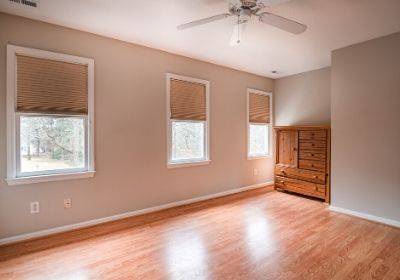What is rental property insurance?
Rental property insurance, also known as landlord insurance, is financial protection for properties such as houses, condos, farms and commercial buildings that you own and rent to others. Rental property insurance includes property damage coverages for the building, contents coverage for items owned by the landlord, kitchen equipment and laundry facilities, and liability coverage. The rental property owner can also add coverage for loss of rental income should the property be damaged due to a covered loss, and the tenant cannot reside at the property and, therefore, not pay their rent. Rental property insurance policies can be written as personal insurance, added to your current homeowner’s policy, or on a business insurance policy.
Who needs rental property insurance?
Anyone who owns a rental property needs to have rental property insurance to protect your investment from covered losses. It also protects your liability should a tenant or others put forward a claim against you due to negligence, mishaps, or accidents as the landlord and property owner. Most banks or mortgage lenders will require a rental property to be insured before offering a mortgage.

Who pays insurance on a rental property?
The owner of the property is responsible for payment of the insurance on the rental property and is the named insured on the investment property policy documents. It is prudent that the owner ensures that tenants also have their own insurance to protect the tenant’s personal contents and personal liability. Many times this requirement is included in the rental agreement. When a tenant has their own tenants insurance, it also protects the landlord should a tenant be negligent for a loss. The landlord’s insurance provider (company) can recover losses from the tenant’s insurance policy.
An example would be if a tenant left a candle burning, causing significant damage to the property. The property owner’s rental property insurance will cover damages to the building. The company providing the landlord’s insurance can try to recoup the costs from the tenant’s policy as they were negligent. If the tenant did not have their own liability policy, the insurance company providing the owner/landlord’s insurance would sue the tenant directly and may not recover anything.
The Canadian Mortgage and Housing Corporation (CMHC) has details on the responsibilities of a landlord and tenant when renting a property.
How much rental property insurance do I need?
A landlord should have enough rental property insurance to cover the building’s replacement cost should a loss occur. You should also have enough coverage for the contents of the property, including any appliances the landlord owns, furnishings, and similar items. The landlord should also advise the insurance broker of the amount of rental income generated from the property so a coverage can be added for loss of rental income in the event the property is damaged due to a covered loss.
If you have a mortgage, the lender will probably want the building’s value to exceed your mortgage in case a total loss occurs. An insurance broker can help you evaluate the replacement cost, whether it be a home, multi-unit building, farm, or commercial building, and ensure that you and your investment are properly protected.

What does rental property insurance cover?
Rental property insurance will cover the dwelling building, damages to the building caused by covered losses such as fire, water, and wind damage, as listed in the insurance policy wordings, contents owned by the landlord, detached structures like sheds or detached garages, rental income, and liability coverage.
An insurance broker is trained to provide you with options from the many insurance companies they represent. Insurance companies differ in their coverages and pricing. When you work with an insurance broker, you will get several competitive quotes for your investment property insurance. You can then choose which landlord insurance policy you want.
What does rental property insurance not cover?
Rental property insurance does not cover personal contents or liability of the tenants living at the property, certain water coverages, vandalism, and damage caused by your tenants. The landlord should require in their rental agreement that renters have their own tenants insurance. Tenants should also provide the landlord with the policy number, insurance company name, and a copy of the policy documents. Most insurance companies also require this information before agreeing to insure a rental property.
You should always discuss with the insurance broker what is included and what is not included in the investment property policy you are reviewing before you purchase your investment property insurance.

How Much Does Rental Property Insurance Cost?
There are many factors considered in determining the cost of your rental property insurance. Some include the type of property you are insuring, if the property is vacant or occupied, how many units you are renting, who rents the property, and whether its a long-term or short term lease. The landlord should expect to pay at least 20% more for insurance for a rental property than if the owner occupied the unit. If the rental unit is in a commercial building, expect to pay about 40% more.
It is best to speak with an insurance broker who can help determine your needs to ensure you have the proper coverages, and who can shop dozens of Ontario’s leading insurance companies to find you the best policy at a competitive premium.
How do I insure multiple rental properties?
If you are insuring multiple rental properties, you will most likely require a commercial property insurance policy. Most personal rental property insurance policies have limits on how many properties can be on the policy. For this reason, if you have multiple rental properties, you would need a commercial policy. A commercial property policy will list all of the properties, coverages, and limits separately, and will include a commercial general liability package.
An insurance broker is an expert who will advise what you need and help to ensure you are protected.

Does rental property insurance cost more than standard home insurance?
Rental property insurance generally costs more than standard home insurance; however, insurance rates vary. Rates are based on risk, building replacement value, and the coverages you choose on your policy. Property insurance discounts can also lower the cost of your insurance.
Here is an example: If you have a triplex with three separate families residing in the building, the risk is much higher than if you have one family living in a building. The higher risk means the cost of insurance for the triplex will be higher.
Where can I buy rental property insurance?
You can buy rental property insurance from Morison Insurance. We will shop Canada’s leading insurance companies to find you the best coverage at a competitive rate. Get started today by filling out the form on our website, or by calling 1-800-463-8074. You’ll be happy you did.
The Morison Insurance difference
Our brokers at Morison Insurance are rental property insurance professionals. When you contact us about insurance for a rental property, we will:
-
- Discuss your property and your insurance needs with you.
- Get you several competitive investment property insurance quotes from Canadian insurance companies.
- Discuss the quotes with you and help you to determine which policy best meets your protection needs and your budget.
- Get you as many discounts as possible to help you save.
- Provide you with choices. You choose which policy you want. Some insurance salespeople represent only one insurance company. Having insurance options is essential. With an insurance broker, you can select the policy that suits your needs and your budget.
- Provide you with your personal insurance broker who will look after your insurance needs. Ask questions, make changes to your insurance, and get help with all your insurance needs. Your broker is here for you.
- Help you to get different types of insurance – home, auto, recreational, business, condo, second home, and more.
- Help you get all of the insurance discounts you deserve.
Check out our testimonials to learn more about our Morison Insurance team. We aim to protect, and please you.
This content is written by our Morison Insurance team. All information posted is merely for educational and informational purposes. It is not intended as a substitute for professional advice. Should you decide to act upon any information in this article, you do so at your own risk. While the information on this website has been verified to the best of our abilities, we cannot guarantee that there are no mistakes or errors.


